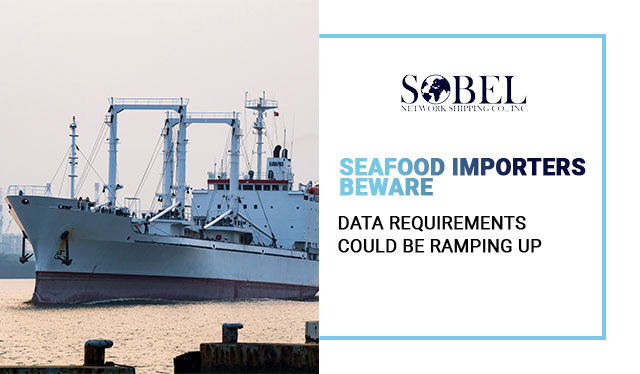Customs and Border Protection and other government agencies have increased their attention on the sources of imported products coming into the United States for a multitude of reasons, most of them ethical and environmental in nature.
Importers of produce know first-hand these restrictions, with stringent APHIS regimes dictating import eligibility based on potential hazards to American agriculture that are present or traveling with items from certain countries or regions.
The NCBFAA, our national trade association, is closely watching changes that will require seafood importers to not just know the origin and location of a catch, but significantly more details about the vessel, crew and chain of custody up to and including arrival in the United States.
Under the jurisdiction of the National Oceanic and Atmospheric Administration (NOAA), seafood importers already are required to meet the regulatory standards imposed by their Seafood Import Monitoring Program, or SIMP.
The overview of the SIMP, as described by NOAA is:
The Seafood Import Monitoring Program establishes reporting and recordkeeping requirements for imports of thirteen seafood species groups, to combat illegal, unreported, and unregulated-caught and/or misrepresented seafood from entering U.S. commerce. SIMP provides additional protections for our national economy, global food security, and the sustainability of our shared ocean resources.
Compliance for the first eleven species groups began on January 1, 2018. Compliance for shrimp and abalone, the remaining two species groups, became effective on December 31, 2018.
A bipartisan bill introduced in the House of Representatives by Reps. Jared Huffman (D-CA) and Garret Graves (R-LA), the Illegal Fishing and Forced Labor Prevention Act (H.R. 3075) seeks to add more data elements.
Several of the key changes the bill would make include:
- Expanding the SIMP to include all imported seafood and seafood products.
- Requiring chain of custody records for every custodian at time of entry.
- Requires verification and certification of harvest information at transfer points.
- Prior notice and submission of import data at least 72 hours prior to entry.
- Calls for stepped up audits of seafood importers.
Many of these proposals mirror what importers of other products are already used to doing – verification and validation audits under CTPAT, pre-arrival submissions like ISF or FDA Prior Notice and meeting other regulatory obligations. What complicates matters is that unless the product is being sourced from a stationary farm, the validation of location of a catch in either international or a nation’s territorial waters will need to have an iron-clad means of verification.
Not unlike CBP attempting to locate and prevent the entry of counterfeit merchandise, substantial global time and effort is spent to combat illegal fishing or overfishing by the fleets of different countries.
Sobel Network Shipping will continue to monitor the progress of the legislation through the House Natural Resources Committee of which Rep. Huffman serves as a Subcommittee Chairman and eventually to the full House and Senate for a vote. For more information about the current entry requirements under the SIMP, contact your Sobel representative.


